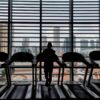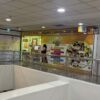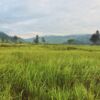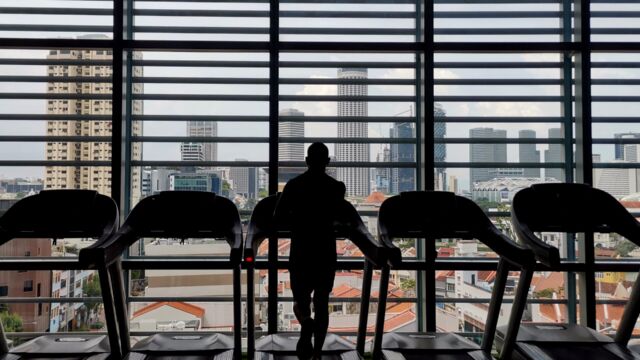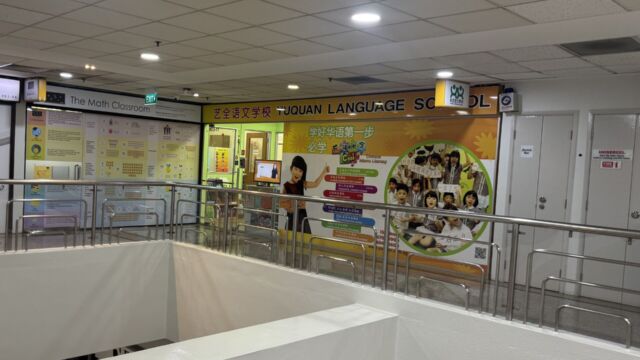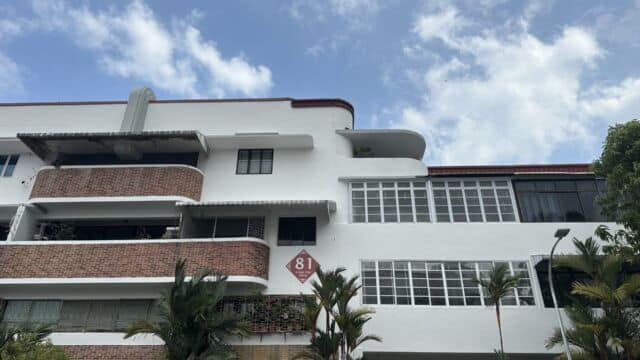The Needle That Punctures Orchard Road
Photo: Orchard Business Association
Orchard Towers | 3,380 words
Translated from Chinese by Luisetta Mudie
“The U.S. Navy ship has docked,” a man sings shrilly in a foreign accent in the bar on the second floor, amid the sound of dancing boots hitting the ground.
Our smoking spot is just outside the bar, under its window, where we can hear the song lyrics clearly. I don’t know the song, but my colleagues know it very well: “It’s a Navy song,” says one, pointing her cigarette in a two-finger hold like a fairy wand. “They are all Navy Boys.”
Magic only works on this particular street. Looking up into the night sky beyond the laughter, swearing and foreign military music, there is a dazzling pink neon glow. Christmas on Orchard Road always comes earlier than anywhere else, and from mid-November onwards, the three-kilometer stretch of road from Tanglin Road to Plaza Singapura is a sea of shimmering lights. The theme of this year’s Christmas light exhibition is Disney. Snow White’s apple, Cinderella’s glass slipper, and the shell of the Little Mermaid hang in the night sky like a dream, exaggerated, distorted and sparkly pink, like the bedroom of an eight-year-old girl in a movie.
Orchard Towers, where we are, is no exception. The magic shines on everyone’s faces, lighting them up with a rosy glow, and turning the cigarettes between their fingers pink. The off-white building faithfully reflects the overbearing miasma, the effect of which is more erotic than romantic. It’s now Christmas Eve, and people are hurrying out for a last round of revelry before heading back home to be with their families. But there are no Disney princesses here, only ladies of the night. No princes, either, only navy men. The whole of Orchard Road is transformed into an adult-themed Disneyland, a place of work where sex workers can make three times their usual income if they put in some extra effort.
I need to pee, but I think I’ll wait a bit longer. While my colleague smokes, I look down and text my husband: “So many U.S. Navy guys today. Don’t want to go to the toilet.” I look up again, and get a waft of intoxicating cigarette smoke. My colleagues have a posh way of smoking. I’m the only one who doesn’t smoke. But I get up surreptitiously every time they gather to go downstairs. I don’t mind the smell of cigarettes. But I wasn’t going to take it up just to fit in with the crowd. Smoking is a good time to chat to people and lift one’s mood. For an introvert like me, it’s an opportunity not to be missed. Nobody minds me imposing myself on them like this, and I get to inhale the fumes while joining in the conversation. But now I need to pee. If I go to the toilet right now, there might be a bad smell and unidentifiable fluids on the floor. I’m even less keen on shouldering my way through the building on my own, past all of those drunk and swaying bodies giving me lecherous looks, to get there.
By the time I get back, they’ve finished their cigarettes, and the conversation has burned down to a stub.
I feel safe around my colleagues. The first time I attended volunteer training, I was told that I couldn’t do it alone. I like to call them my colleagues. They’re actually the three full-time employees and a few volunteers at Project X, the only non-profit organization in Singapore to serve and support sex workers. Since I started volunteering, I go almost every week to their office on the fourth floor of Orchard Towers Building to help my colleagues hand out condoms and wet wipes to sex workers in massage parlours, bars, and nightclubs, provide free STD and HIV testing, and find out if they need healthcare, emotional support or legal assistance. There are legal red light districts in Singapore, and they’re even included in the travel guides. But not here. The reality of the sex industry is far more complex than it appears on the news or in travel writings. The Orchard Towers sex workers have operated in a grey area for a long time, keeping a low profile, vulnerable, but also resilient. I started this work out of a sense of curiosity, but also confusion, about the sex work community. I wanted to meet complex individuals, to purge my thoughts and feelings of prejudice, and update my knowledge. But the first thing that struck me was this building.
Orchard Towers is crammed into the farthest corner of Orchard Road, Singapore’s most famous commercial street, a shopping paradise for tourists from all over the world, and a place I have visited countless times, witnessing the demolition and rebuilding of shopping mall after shopping mall over the course of more than a decade. When I first arrived in Singapore at the age of 15, an older classmate took me to Lucky Plaza to buy a mobile phone; I would go to Cathay Cineleisure to watch movies and sing karaoke with my classmates on the weekend; when I graduated from secondary school, I went to buy my cheap prom dress from the Far East Shopping Mall; I went to Kinokuniya in Ngee Ann City to read books and magazines whenever I had time to kill. I had passed by the entrance of this building countless times, but I had never been curious or suspicious about what kind of people were inside and what was going on in there. In the official view of the city, this building has been greyed out or even deleted. How does it sit there in the plain light of day, while somehow also being erased from the view of eyes that see only what is bright and shiny? I was amazed by the endless complexities of Orchard Road.
A month later, the Christmas lights have been taken down, and the smoking spot looks very different. Now, Orchard Road has been made smoke-free. “Nobody is allowed to smoke in or around any of the 102 buildings, or along 39 major and minor roads and major shopping malls in this area,” according to the news. We still go downstairs to smoke, but at one of dozens of “designated smoking areas” that are now marked by yellow-painted boxes on the ground. It’s a smoke-free zone, but you can still smoke. You just have to do it in these marked-out boxes. Inside the box, it’s legal. Step outside the box, and you break the law. The smoking areas get quite crowded at night, so I have to stand outside the box, not smoking. The perimeter of the box divides us, so I can no longer pretend to be one of them.
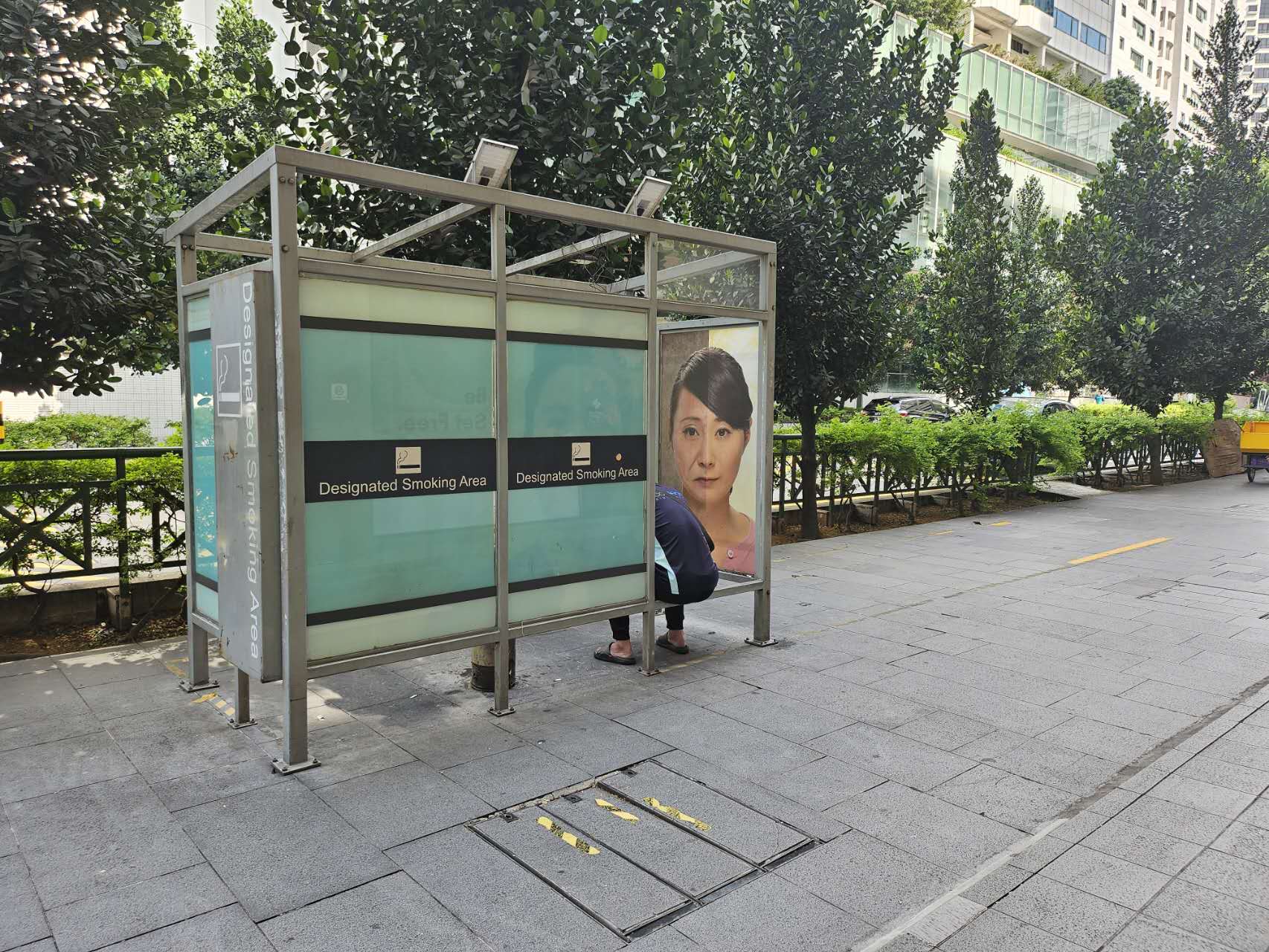
Orchard Road has done well under this New Deal. It’s still busy, modern and tidy. Glass shelters cover half of these designated smoking boxes, so all you can see is people’s feet peeping out from underneath in various postures. The rest of the smokers are veiled from public view, particularly their illegal heads, hands and cigarettes, as if making them invisible means they don’t exist. As I stand outside the box looking in, I suddenly realize something profound. This is the Singapore I have known for a long time. I passed through Orchard Road countless times without seeing what was really happening there, without noticing those who are forbidden to exist, but still do—just shut away in a well-defined area. It gets around through word of mouth, and stands quietly waiting on the margins. The footfall on Christmas Eve is huge here, but it can’t be mentioned or discussed openly. Orchard Road needs the business, while at the same time acting like it’s not there.
Since the advent of the smoking boxes, I have spent a lot of time thinking about boxes in general, and I’ve drawn a lot of line-like conclusions.
In Orchard Towers, we hand out supplies along a fixed rectangular route of corridors a lot like a box. More experienced colleagues tell me to take each floor in the right order, so as not to seem as if we are favoring anyone, as some people get jealous. Each store is like a small box, with its rectangular glass doors often closed, framing the interior, inviting the imagination to picture what’s inside.
Whenever I take a taxi and tell the driver “Orchard Towers,” they give me a look in the rearview mirror that’s also a straight line. Actually, I would prefer to just walk there, to escape the box they put around me. I have other boxes, though, other labels: migrant, scholarship kid, woman, writer, college lecturer. But I’m happy outside the box. I don’t want to live a life defined by labels.
Once I actually start working at Orchard Towers, once the hearsay and the imaginings fade away, the lines of the boxes start to blur. Before it gets busy, Orchard Towers isn’t much different from an ordinary neighborhood mall. The majority of sex workers there are masseuses, ranging in age from 30 to 50. I speak Chinese, so it’s easy for me to chat with them. One by one, those rectangular shop doors start opening up to me, and I am greeted, asked inside for a chat. Two masseuses in two adjacent stores find out that I teach at the university, and then the conversation leads on to their kids.
“How much does college tuition cost a year now?” one wants to know.
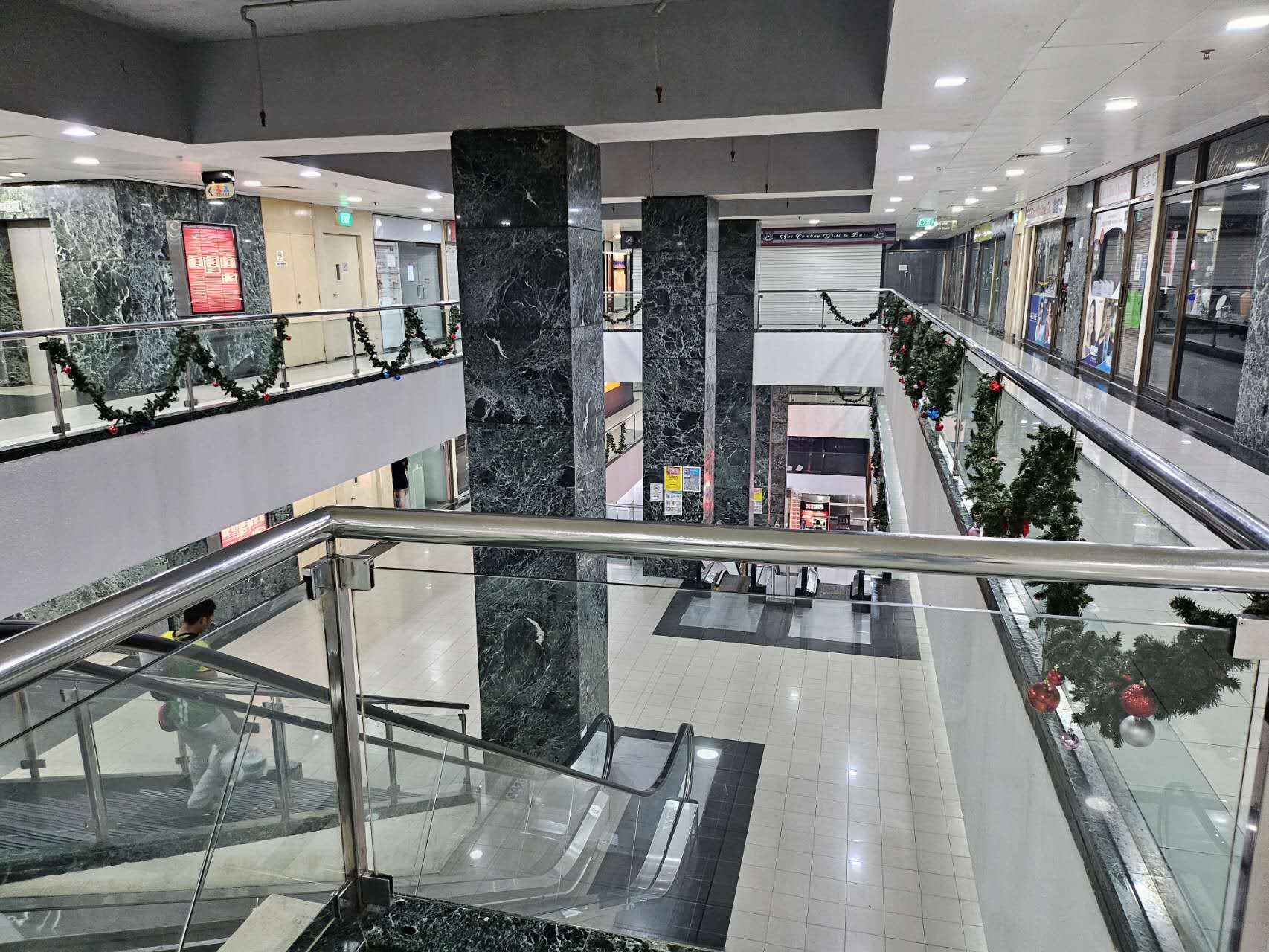
I quote a vague number, adding: “It goes up every year. Different majors have different fees—the tuition for law school and medical school are a lot more.”
No sooner am I finished talking than a man comes by and looks at us furtively. The masseuse immediately straightens up and goes over to talk to him. They barely exchange a few words before the man turns around again and leaves. It seems no deal has been struck. The masseuse wanders slowly back over to carry on our conversation.
“I just want my son to be a lawyer or a doctor!” she says. “I have to try to put aside more money for him,” she adds, as if such a big expense is nothing.
I’m seeing first hand how hard they work to earn money to support their families.
“If their grades are good, you can apply for scholarships, and you can also get a student loan from the banks. A lot of college students also work and study half-time,” I tell her with a smile. “That’s how I got where I am.”
“As long as he is willing to go, I’m willing to pay for him,” she says. “I still have to save up enough to pay his tuition. I don’t want him to worry about the money.” There is nothing heavy or reluctant in her tone. On the contrary, it is full of ambition and expectation.
“Yeah, that’s what I’m thinking too,” says the other masseuse. “What’s that saying? 父母之爱子,则为之计深远—there’s no love like parental love”.
I hadn’t expected her to quote from “The Strategies of the Warring States.” But it isn’t that surprising. The hottest TV quiz show of that year, “The Story of Ming Lan”, has popularized this ancient Chinese saying as a shorthand way of referring to parents’ painstaking efforts to raise their children well.
“It sounds as if your kids are more fortunate than I was,” I laugh, the cold hard lines softening in that moment.
Walking into the frame of Orchard Towers, I step out of my own frame and can see the complex reality that exists outside of frames and boxes. Standing outside the designated smoking area, I chat with two transgender sex workers, one of whom talks about getting ready to take part in a make-up competition, and I realize that we both went to the same make-up school. She asks about the work I and another volunteer do, and I say I teach and write, and that my colleague is in her third year at university.
“Maybe we could have done so much more if we’d been born women, be what we want,” she says to her companion, enviously.
I am shocked by this. It seems we face such different barriers from within our respective boxes. I have assumed that their lives are no different from those of other people, but they have been broken by Orchard Road. Most people come to Orchard Road as an expansion and continuation of our day-to-day personal lives, to shop, take in the entertainment, and dress up. When they come here, they leave behind their happy personal lives to be consumed by the shadow of this building, to do work that can’t be shown to anyone, or even spoken about. I can’t help imagining them as mothers, as classmates, but I don’t know how to bridge the distance between us.
Until it’s time for our monthly free HIV testing, which we do in the dark alley at the back of the building. Asian culture has some taboos around sickness and medical treatment, so the test van parks up in the alleyway. We invite and persuade sex workers from the building to get tested regularly. A lot of them are afraid to even start getting tested, because they fear what the results could be. The alleyway isn’t very long. Orchard Towers is at one end, and it leads to some unknown side road. I’m taking names by the car, and I catch sight of a familiar figure approaching from the other end of the alley. She’s a masseuse whom I know quite well, but I don’t recognize her at first. She hasn’t had time to put on make-up, her waist-length hair hangs loose, and she’s wearing a very ordinary-looking black T-shirt and trousers. She’s walking quite slowly. It’s a far cry from the thick make-up and the short skirt I’ve previously seen her in. Our eyes meet, and she recognizes me with a smile that seems unforced and natural—something I’m also not used to seeing from her. I come to my senses and invite her to get tested for HIV. She seems hesitant, but doesn’t refuse. Instead, she sits down and gets the test, in apparent good humor.
“I just came from home,” she says. “I haven’t had time to eat yet. Have you eaten yet?” she asks me, a typical greeting among the Chinese, who have long been focused on making sure everyone is fed.
I can’t remember what we went on to talk about. But the image of her in that alleyway is clearly imprinted in my memory. The person I saw walking towards Orchard Towers still had the glow of daily life about her, a kind of gentleness and certainty that had always been hers. Then she walked into that clearly defined box. Seeing what she looked like outside the box, I figure that this is the power that supports her while she is inside the box, so that she doesn’t break. It’s a power that the box can’t suppress.
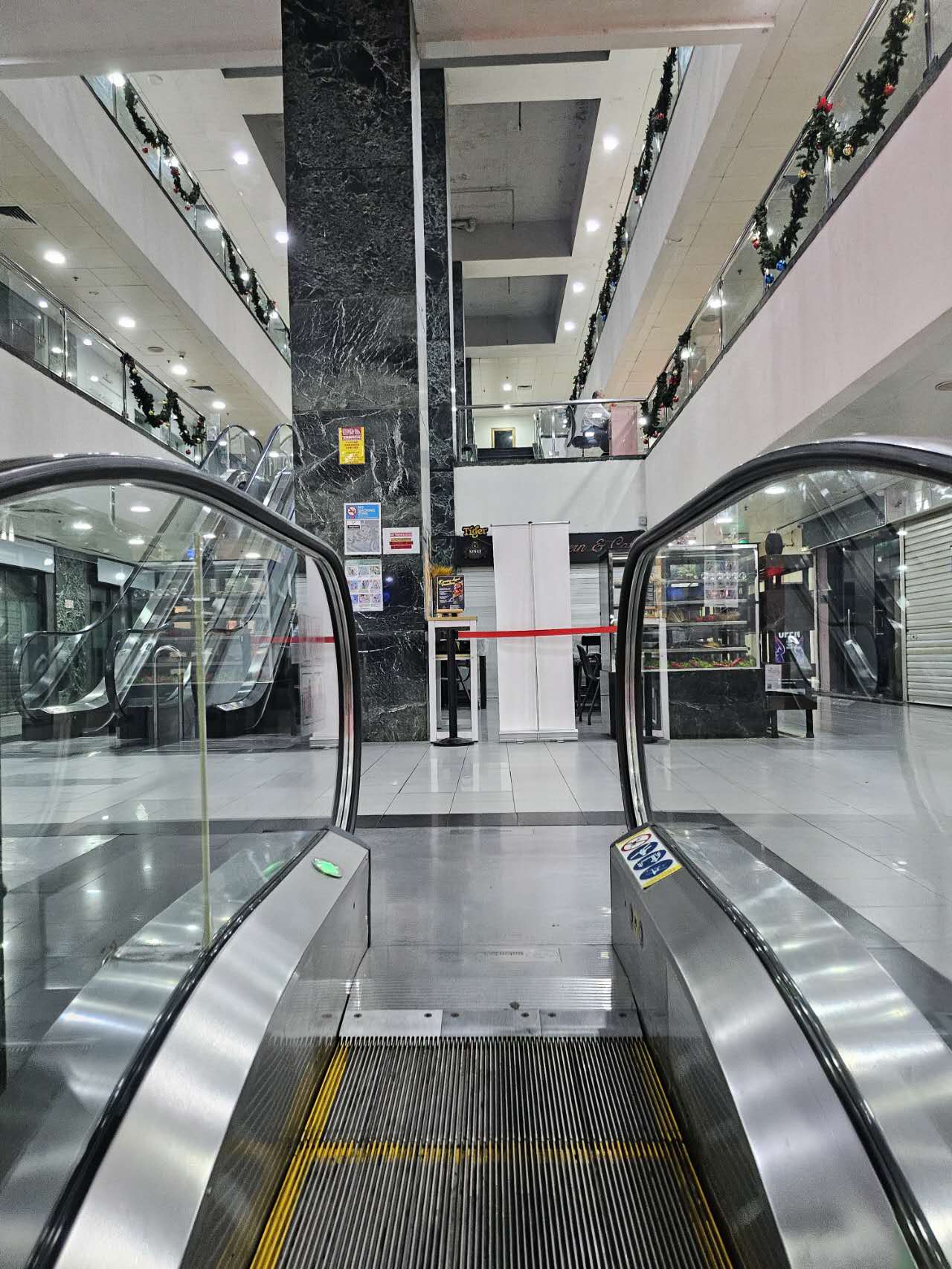
That night, after I finish volunteering, I find a new route home on Google Maps. Instead of taking the subway, I cut around the back from the parking lot between the shopping mall and the luxury hotel, then walk across a flyover to catch the direct bus back to Clementi. As I enter the parking lot tucked away behind the brightly lit main drag, the area darkens around me, and I’m heading away from the nightlife of Orchard Road, along a quiet backstreet under the shadows of the trees. The darkness makes me feel a bit jittery, yet as I walk along nervously, I also feel more alive. This is my choice, to walk in the shadows away from the glittering lights of Orchard Road. I don’t want to spend all my time under bright lights. Now, I don’t see the sex workers as being broken by Orchard Road. Instead, I see Orchard Road as a huge bubble and the alleyway as a needle that punctures it. My brilliant, beautiful life is also a bubble, and this lonely night-time street is the needle that pops it.
I don’t go back to Orchard Road until nearly four years later. I move to China just before the pandemic, never thinking it will take me another four years to make that four-hour flight home. I change a lot in that time, with a new identity as the mother of a two-year-old child. Back in Singapore, I go to the Japanese Embassy to apply for a tourist visa. From there, I walk to the end of Nassim Road and turn into Orchard Road, catching sight of a brightly lit sign on the first floor of the Forum Mall. The sign is for an expensive early childhood education center that nurtures children’s creative expression through drama. As I look at the center, which isn’t far from Orchard Road, I suddenly realize that it’s directly opposite Orchard Towers. Every time I went downstairs to keep my smoking colleagues company, I would always look straight ahead. Will the children and parents who come here look at the magnificent building opposite, and know what is happening on the other side? Will the sex worker I met shortly after she got pregnant be gazing back at the toy store and high-end early learning center opposite, wondering what kind of a mother she will become?
Standing on that street corner, I have no fear that my child will ever encounter the sort of thing that goes on in the shopping mall across the street. The only thing that makes me sad is the way people pretend not to know. Because what you don’t know about, you can’t care about. It’s as if there’s a line running down Orchard Road that reflects its own image back to itself, like a mirror in which you can only see your own image, narcissistically. Yet people don’t stay in their boxes. They don’t want to just stand in front of mirrors. They will move around, and have feelings of empathy for what’s going on across the street. They will see the children in one mall and the sex workers in the other, not parallel lines that never intersect.
I decide that the early learning center is too far to travel from where we live. So I go home to read picture books to my kid, to encourage his creative expression in a more time-honored manner. The last book I read him before bed is always Circles and Lines. It’s a picture book aimed at stimulating visual development for babies just a few months old. But my two-year-old son still loves it. In it, a straight road morphs into a school of tropical fish, then again into falling rain. A circle becomes a lollipop, then a wheel with a hamster running in it. It’s an ever-changing world that appears magical to children. My son likes to be the magician, searching through the book endlessly for the paths, the circles, and their endless incarnations. Maybe later, he’ll come to realize that the way that can be spoken is not the eternal Way. There is sadness and joy in human life, and the moon waxes round and wanes again.
My child is asleep, and my mind is like that running hamster, trapped in a circle, like the “O” in Orchard. There are two “O” sounds in “Orchard Towers,” making the lips form a hole shape two times if you say the word aloud. This roundness lacks aggression; it’s like the plump shape of a kindly face. I keep reading Circles and Lines aloud in the dark. The circles become contraceptive pills, or the round raised circle in a condom packet. Blood and semen make a round shape when they fall. The circles become handcuffs, or a lowered head. An enlarged uterus, a pregnant belly, or a perfect breast after plastic surgery. A cycle in which a ship leaves and the next ship docks, or the Christmas lights are taken down one year and put up again the next. The circles are harmony and tolerance in the midst of chaotic times. They look at each other, and they recognize each other.
© Sui Ting
English translation © Luisetta Mudie
Commissioning editor: Wong Kai Hui

